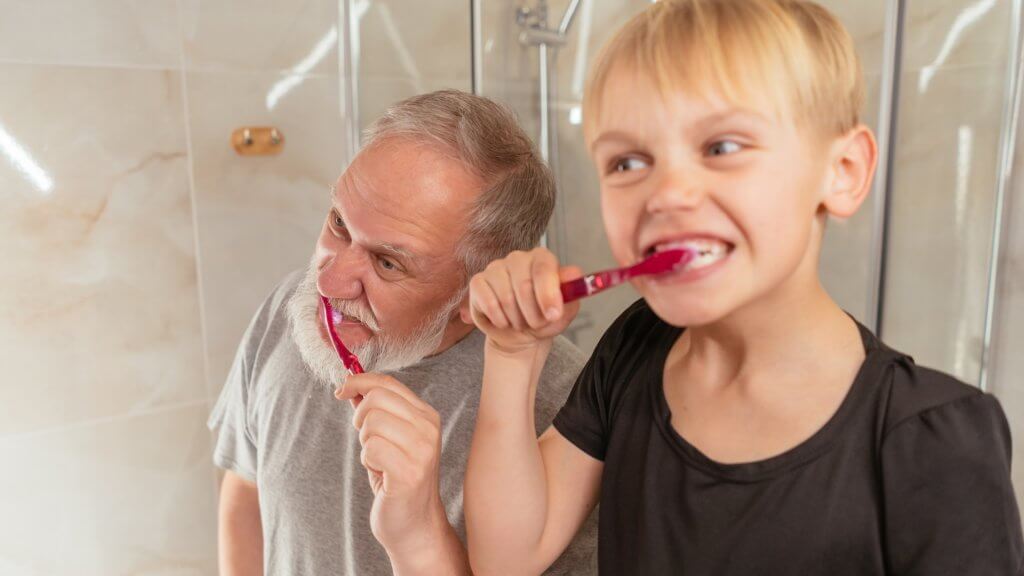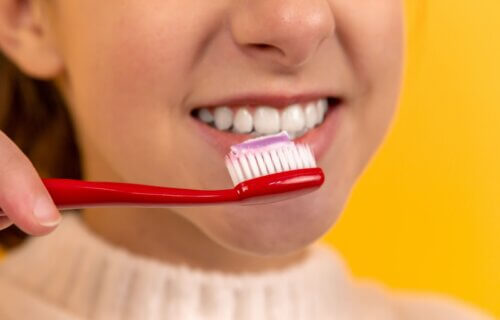POZNAŃ, Poland — Scientists have developed a toothpaste designed to enhance children’s bone strength. Unlike traditional toothpastes, it contains hydroxyapatite instead of fluoride, a substance that may damage joints when ingested. According to a study, however, patients who used the new formulation were no more susceptible to developing cavities than those using fluoride toothpaste.
“Hydroxyapatite is a safe and effective alternative to fluoride in caries prevention for daily use,” says Professor Elzbieta Paszynska from the Poznan University of Medical Sciences, co-principal investigator and corresponding author of the study.
Similar to calcium, hydroxyapatite strengthens the skeletal system and is safe for human consumption. Earlier studies have indicated that it can help guard against gum disease. The mineral not only prevents the development of cavities but also reinforces damaged tooth surfaces.
Currently, nearly all toothpastes contain fluoride, which can pose health risks, particularly for children who may swallow it. Interestingly, tooth enamel, the hardest biological substance, is primarily composed of hydroxyapatite. Although harder than steel, it is considerably more brittle, meaning that while it won’t scratch on metal cutlery, it can chip if used improperly, such as trying to open a beer bottle.
“Currently, in dental care, the aim is to use ‘minimally invasive dentistry’ as often as possible,” Paszynska explains in a media release. “This means trying to preserve as much tooth tissue as possible, including those altered by initial caries that still show the ability to remineralize. The use of remineralization compounds is a boon, as it may limit the need for invasive treatment of carious lesions with a drill.”

After 18 months, nearly 90 percent of the 171 participants between 18 and 45 years-old had no new cavities, regardless of whether they used hydroxyapatite or fluoride toothpaste. The efficacy appeared to be the same for both. These participants, free of pre-existing dental issues, were provided with electric toothbrushes, replacement heads, and neutrally packaged toothpaste to keep the type unknown.
The participants were instructed to brush their teeth twice a day, post meals, for three minutes each time, without making any changes to their diet.
“We did not monitor the diet of each subject as the aim was to test two different toothpastes, not the influence of the diet on the caries progress,” the study author says.
Every six months, the participants visited clinicians for an examination and a new supply of toothpaste. A plaque disclosing solution was also utilized to assess the cleanliness of their teeth. The study found no significant difference in effectiveness between the patients using hydroxyapatite toothpaste and the control group.
“Previously published clinical trials also show the caries-preventing effect of hydroxyapatite in risk groups such as children and patients undergoing orthodontic therapy,” Paszynska concludes. “With our new clinical trial, it has been shown that hydroxyapatite prevents dental caries in adults. This is important from a public health perspective.”
The study is published in the journal Frontiers in Public Health.
South West News Service writer Mark Waghorn contributed to this report.

